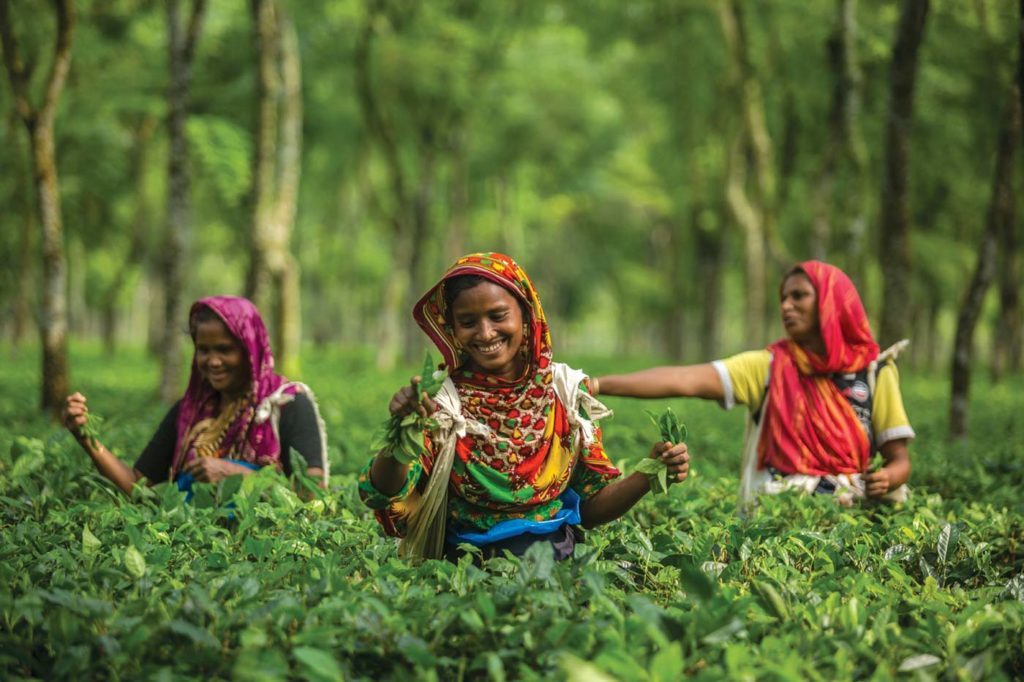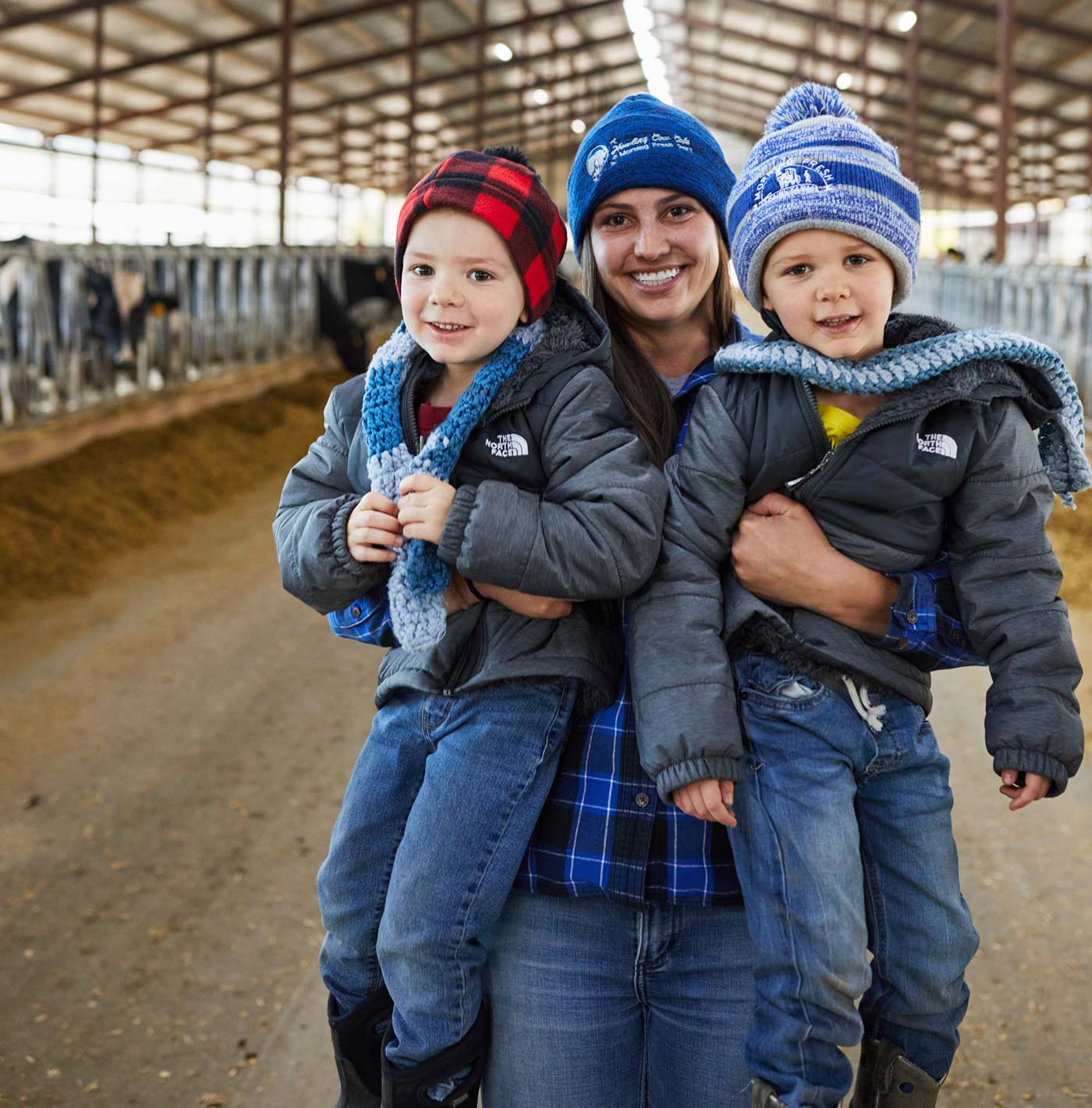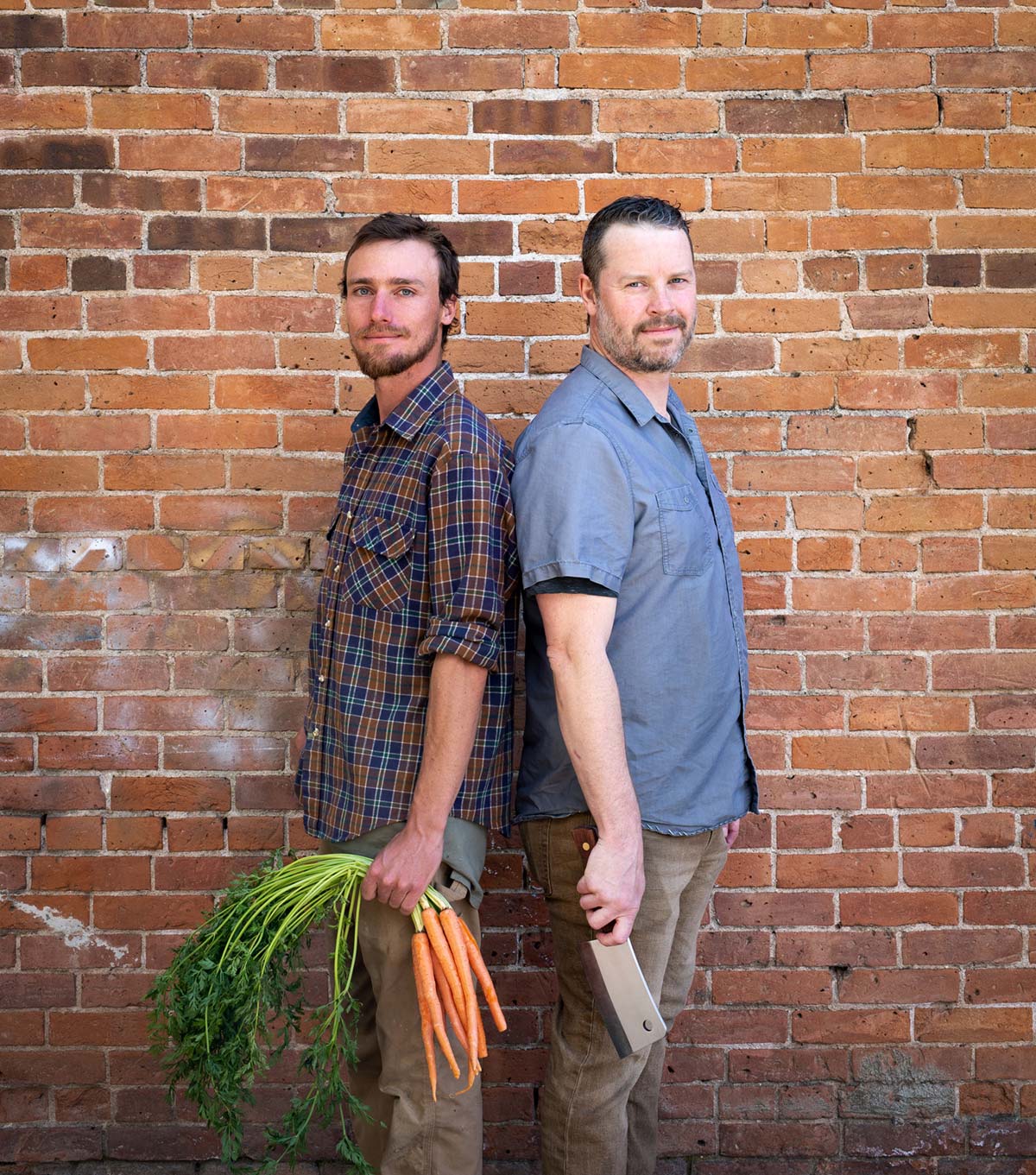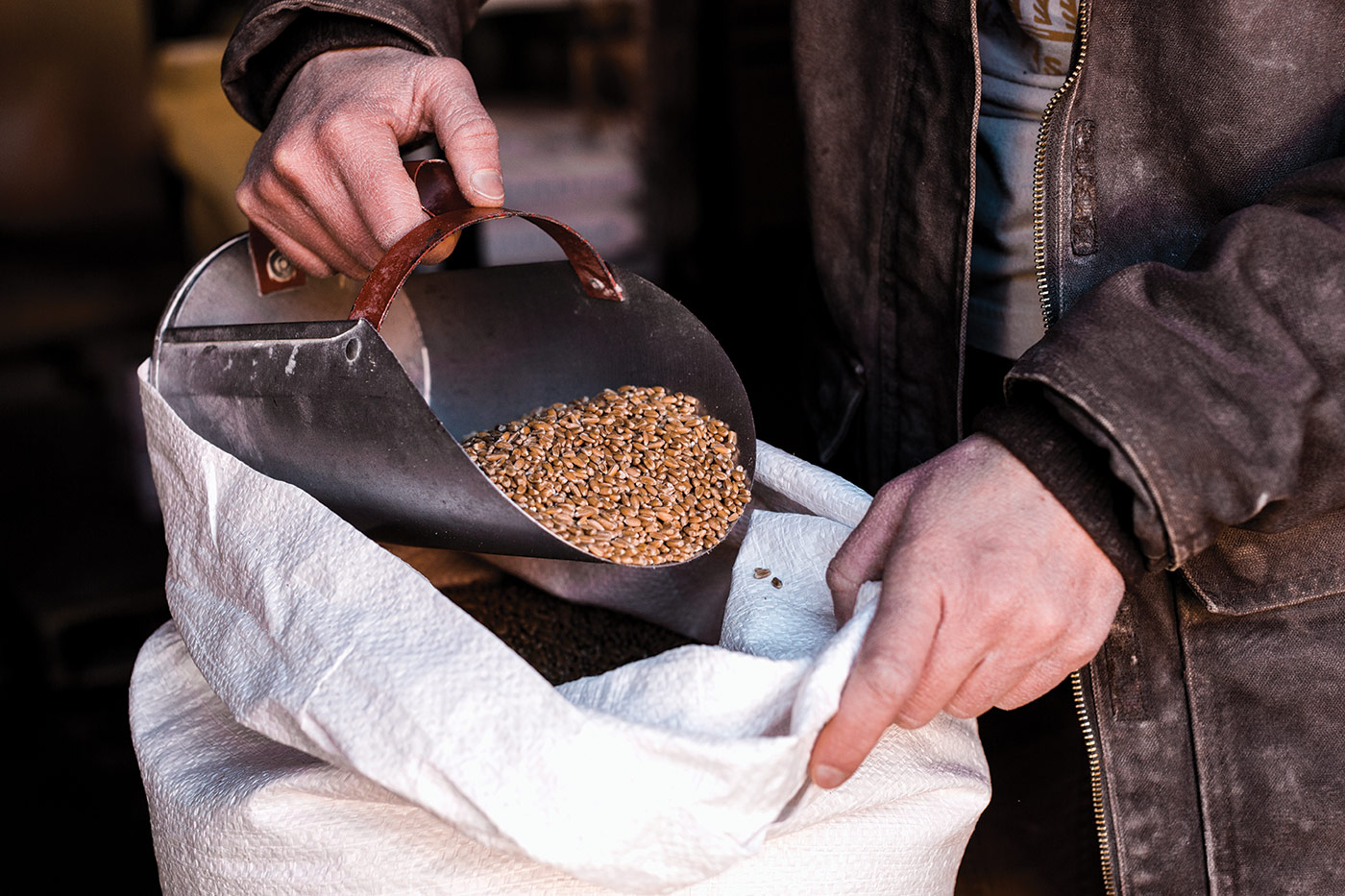Two Colorado companies, two ingredients a world away, one singular mission
This is the story of two crops—vanilla and tea—both grown on the other side of the world. This is the story of two Colorado companies—The Sweetest Bean and Teatulia—founded largely by accident. This is the story of how you change the world and why it’s important to know the origin of the foods you eat.
In 2005, Shana Gilbert, a Colorado-based filmmaker, chased a movie idea to Africa. She wanted to film and tell the story of humanitarian disaster. Instead, on the way to Zimbabwe, she and her crew stopped in Uganda, where they stumbled upon a pack of orphaned and abandoned street kids—65 in total—raising each other. They stole her heart and, even after Gilbert returned to the States, she couldn’t shake the encounter. Within a couple of months she returned, moving in with the children, determined to get them nourished, educated and out of poverty. She stayed for seven years.
In order to do all the above, Gilbert embarked on creating businesses that could not only teach the kids skills but also could provide lasting income. “We did everything—taxis, chickens, piggery,” she says. “Each business was supposed to maintain something.” Within a matter of years, they had built a farm and a network of enterprises—one of which, eventually, was vanilla.
At about the same time, in 2006, Linda Appel Lipsius and her husband, Adam Lipsius, met Kazi Anis Ahmed, a Bangladeshi with an organic tea garden and a dream. As Linda tells it in an interview many years later, Ahmed was looking to export the organic teas to the U.S. and she offered to help with market analysis. It wasn’t until she began to dig into the logistics of the garden that her involvement grew into a real partnership. Teatulia (teatulia.com) was created.
Located in Northern Bangladesh, Ahmed had planted the garden as a means of boosting the local economy and restoring the land to a more natural state. The area had been ravaged by rock pickers—an industry where people pull large stones from the land and sell them to companies that make building materials like concrete. Uprooting the rocks, however, dislodges nutrients and the soil’s natural order and the land turns barren and desert-like.
Ahmed, however, was able to see beyond the desolation and visualize a tea garden that could (and would!) grow without pesticides, the use of machinery or the implementation of unnatural irrigation. By the time he met Linda Lipsius, the organic garden was thriving.
Teatulia, which is named for the region in Bangladesh where the garden is located, was a true garden-to-cup company. And the timing couldn’t have been better for finding a market in the U.S. The farm-to-table movement had become mainstream and global tea companies were preaching the message. This is when it really clicked for Lipsius and Ahmed: They were ahead of the curve because they already had a product that had a story, was marketable and was something consumers could feel good about. Today, they have 10 full-time Colorado-based employees and package everything in the U.S.
Back in Africa, Gilbert was toiling in vanilla. While living in Indonesia for five years, she became familiar with the ins and outs of the vanilla industry. She also became familiar with the industry’s corruption. Vanilla, which takes nine months to grow, is a time- and labor-intensive crop that can only be pollinated by hand.
“[The orchids] open one time, for one hour, then they shrivel up and die,” Gilbert explains. “When an orchid opens, it has to be pollinated right away. It only grows along the equator, [coincidentally] in impoverished nations where people will work for nothing.”
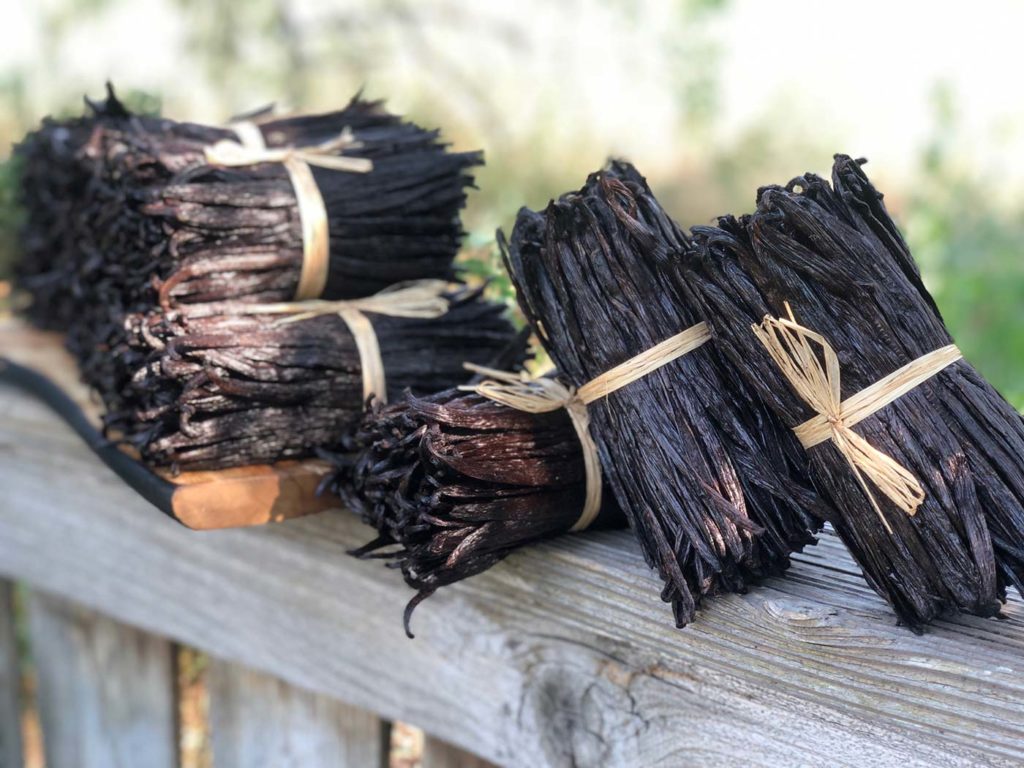
When most people think of vanilla, they probably think of Madagascar. That country’s industry is feverishly busy and dangerous as it relies on slave labor to produce perfectly round beans—the result of drying, curing and rolling the beans in wool blankets to coax out the vanillin.
“That vanillin flavor [the taste and smell we categorize as vanilla] is very labor intensive,” Gilbert says. “It’s very hard to find vanilla sustainably sourced.” And bingo: There was an idea. Could she and the kids (many of whom were now young adults) get into vanilla?
While Uganda had previously had a vanilla industry it had been decimated by a market crash in 2010. But because it’s an equatorial crop, people still had vines and grew it on a small scale. Along with a small troupe, Gilbert began dabbling in the industry.
“There’s no article, no formula; it’s generational knowledge,” Gilbert explains. “You’ve got to know how to work that spice world industry.”
As luck would have it—and Gilbert does seem to have luck in spades—a vanilla expert from New Zealand traveled to Uganda to train her team. He did so because he wanted to buy the product and he wanted to ensure it was done correctly. He trained the Uganda crew three years in a row. And thus, in 2014 and with the help of Gilbert’s childhood friend Laura Driscoll back in Denver, the Sweetest Bean (thesweetestbean.com) was born.
For Teatulia, the idea that originated with Ahmed—a tea garden flourishing with regenerative agriculture that could heal the land and provide jobs—was the foundation of the business. But the partnership with Lipsius and her business acumen (she was previously the international vice president of her family’s company Orange Glo International, maker of OxiClean) is what allowed it to truly blossom into a full-fledged, international tea company.
To date, the tea garden employs 3,000 at the height of the season and it does more good than ever. “We pay 54% above prevailing wage, provide benefits and education,” says CEO Tim Bradley. “Beyond that we have established a foundation [Kazi Shahid Foundation] that further promotes the welfare of community via a cattle-lending program. It’s a microlending program, except instead of cash the currency is cows.”
The program lends to women, who pay back the loan with milk (which Teatulia’s sister company uses to make a dairy product) and dung (which is used to fertilize the tea garden). Once the debt is paid, the cow (and any of its offspring) are owned outright. This system has created a source of wealth that goes beyond the traditional accumulation of cash. According to Teatulia’s website, dairy farming in the area has increased employment by 450% and individual co-op members’ incomes by 300%. The program has also increased monthly milk production by 450% and cow dung for soil fertility by 828%.
The Sweetest Bean is 100% focused on Ugandan vanilla. Gilbert’s team, which is headed up by Alex Kisuule, a young man she had raised since he was 8, buys green, organic beans grown by 700 farmers near Kampala. They then cure the beans in the sun and sweat them in blankets. The Sweetest Bean buys 500–800 pounds of beans and brings them to Denver, where Gilbert and Driscoll make pure vanilla extract. They’ve been producing the vanilla extract in a distillery, but are looking for a new (bigger) space along the Front Range to call home. The duo also sells vanilla powder and whole beans.
“We pride ourselves on having this team that’s paid a fair wage to work really hard,” Driscoll says. “Shana has worked really hard to bring these kids together. They can provide for themselves, for their families. And hopefully, as we grow, we can employ more people.”
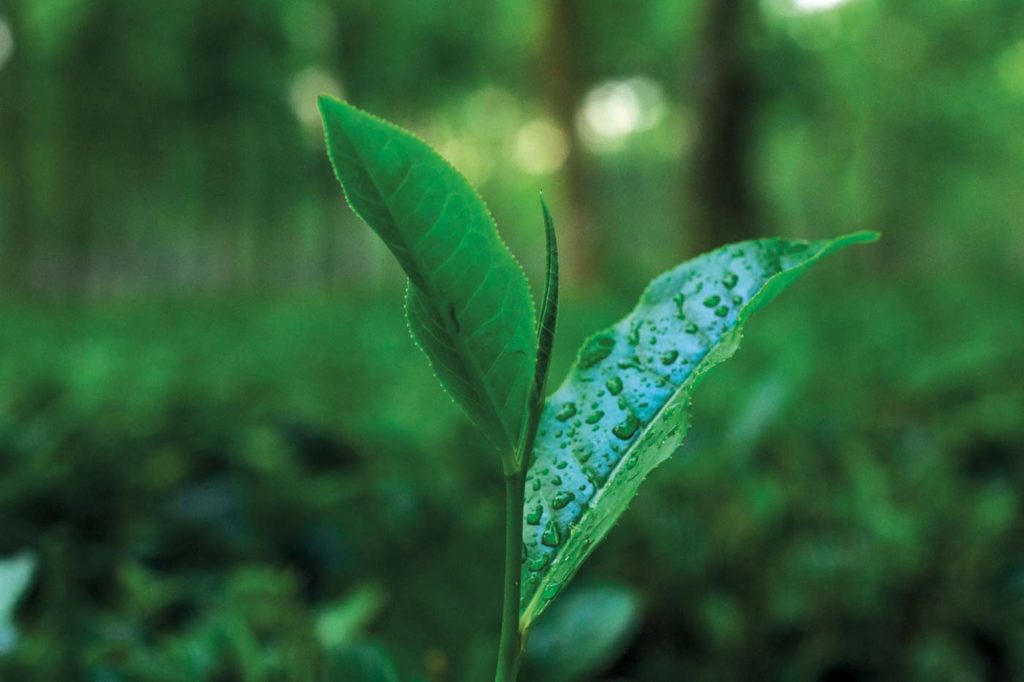
The price of vanilla (it’s the second-most-expensive commodity spice after saffron) is volatile at best and almost entirely dependent on the state of the Madagascar industry. Because of its island location, every four to five years Madagascar’s vanilla crop is ravaged and destroyed by tropical storms, which dramatically affects prices.
“We’re subject to the rest of the world [market prices] but I don’t want to be,” says Gilbert. “I want my team to buy from the same farmers and cure the beans. Then we ship it here and we create a steady source.” The Sweetest Bean creates stability in the Uganda vanilla industry by being the international buyer that honors the worker and the product, not just the product alone.
In a similar way, Teatulia is—as Lipsius says—both the farmer and the brand. The company direct-sources its fair-trade teas and herbs from its 3,000-acre regenerative organic tea garden. It wraps the teas in minimal-waste packaging that is compostable and biodegradable. Teatulia is a certified B Corp, and it also recently became a Public Benefit Company. Rather than a certification, the PBC labels honors and codifies a corporate structure that placing caring for the environment and people as a top priority.
But perhaps the most tangible sign of the company’s success is the garden, which continues to expand each year, reversing the barren landscape left behind by the stone pickers.
“[The garden] sequesters carbon just like the rain forest,” Bradley says. “There are 3,000 acres which now, instead of bouncing sun off sand, pull carbon out of the air and put it into the soil.”
This summer marked a pivotal moment: A leopard appeared in the proximity of the garden. Reestablishing an ecosystem begins with the microscopic and works its way up to worms and bugs and birds and rabbits. “But when a leopard shows up, that’s the top of the food chain,” Bradley explains. “That means the ecosystem has come back enough to support it.”
Two decades ago, unbeknownst to each other, two Colorado women stumbled onto two opportunities. Through different means and a lot of help and hard work, they created companies championing superior products. Along the way, they have nudged the universe by helping create systems and businesses that go beyond best practices and instead have the ability to restore, heal and thrive.


